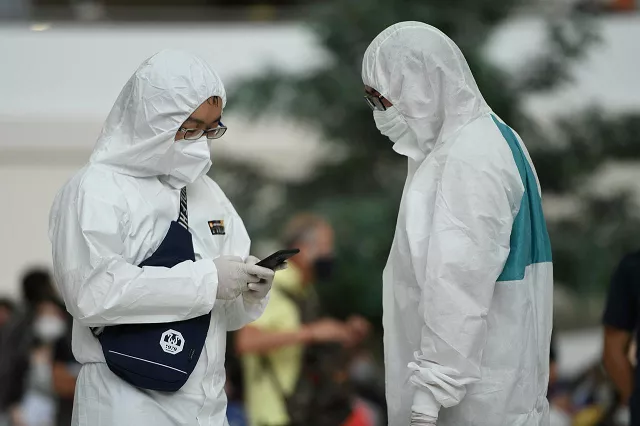Human life or economy?
The government’s indecisive approach will likely damage Pakistan both in terms of human loss as well as the economy
Pakistan has surpassed China in terms of the number of coronavirus cases — and remember, we haven’t yet seen the peak.Irrespective of the exponential growth, Prime Minister Imran Khan is convinced that the lockdown is not the answer to Covid-19 in Pakistan. In fact, the PM has been reluctant to impose a lockdown since the day one as he believes that shutting down the economy will cause more harm than Covid-19. He has often cited the example of other countries, particularly in the West, which have also lifted the lockdowns. He continues to insist that if the US and European countries, having much better resources, cannot sustain the impact of a lockdown, how could Pakistan endure it.
Because of his conviction, now almost all segments of the economy have been reopened. Even the government gave a go-ahead to reopen the tourism sector. This time of the year people usually travel north of the country to enjoy vacations.
Health experts find this decision baffling since reopening the tourism sector may further complicate Pakistan’s battle against Covid-19. But the government is adamant that we have to live with Covid-19 and hence there is no other option but to allow businesses to reopen with certain SOPs.
The debate is still raging whether the government should give preference to saving lives or the economy. Theoretically, saving lives is the priority on any given day. But the PM thinks a country like Pakistan with millions of daily-wage workers cannot afford such an approach. To the contrary, health experts believe that the government’s indecisiveness has caused damage to both the economy and the fight against Covid-19. No one advocated the extended lockdown. Had the government imposed an effective lockdown in late March and April, the situation could have been different. But the government lost that window of opportunity. The absence of an effective lockdown failed to contain the virus.
Now to the debate whether a lockdown is more harmful or Covid-19.
While there seems to be no end in sight on the Covid-19 in the near future, two MIT professors co-authored a study on the effectiveness of lockdown not only to contain the pandemic but also to protect the economy.
The study, based on the information and data related to the Spanish Flu of 1918-19, shows that taking care of public health first is precisely what generates a stronger economic rebound later. The study finds that acting more emphatically to limit social and civic interactions had more economic growth following the period of restrictions.
The study notes that cities that implemented social distancing and other public health interventions just 10 days earlier than their counterparts saw a 5% relative increase in manufacturing employment after the pandemic ended, through 1923. Similarly, an extra 50 days of social distancing was worth a 6.5% increase in manufacturing employment, in a given city.
“We find no evidence that cities that acted more aggressively in public health terms performed worse in economic terms,” says Emil Verner, an assistant professor at the MIT Sloan School of Management and co-author of a new paper detailing the findings. “If anything, the cities that acted more aggressively performed better.”
As now thousands of people are being tested positive for Covid-19 every day in Pakistan, the fear is that the influx of these numbers will put an enormous burden on our fragile health system and feeble economy. As someone aptly put it, you will get many opportunities for livelihood but for that you need to be alive. The government’s indecisive approach will likely damage Pakistan both in terms of human loss as well as the economy.
Published in The Express Tribune, June 8th, 2020.
Like Opinion & Editorial on Facebook, follow @ETOpEd on Twitter to receive all updates on all our daily pieces.


COMMENTS
Comments are moderated and generally will be posted if they are on-topic and not abusive.
For more information, please see our Comments FAQ